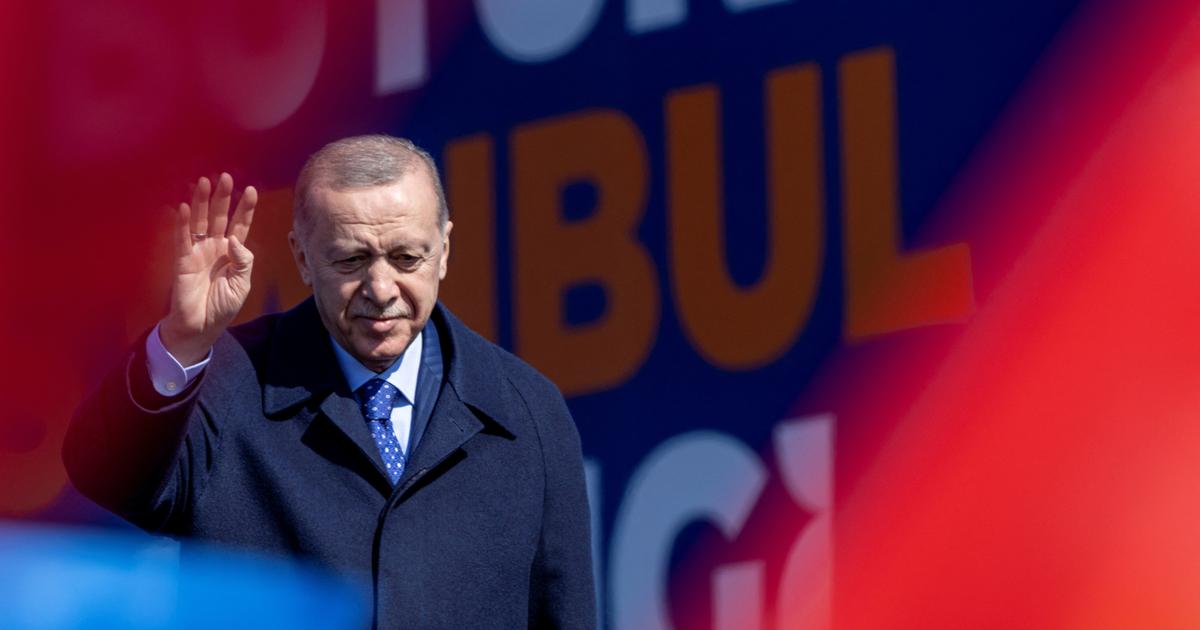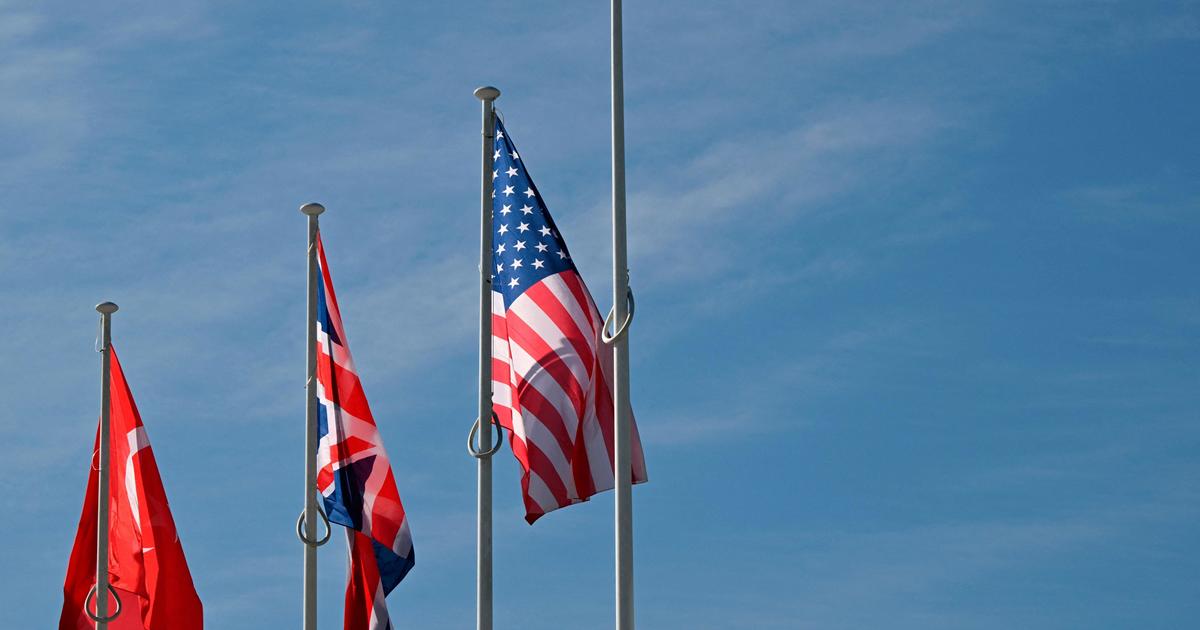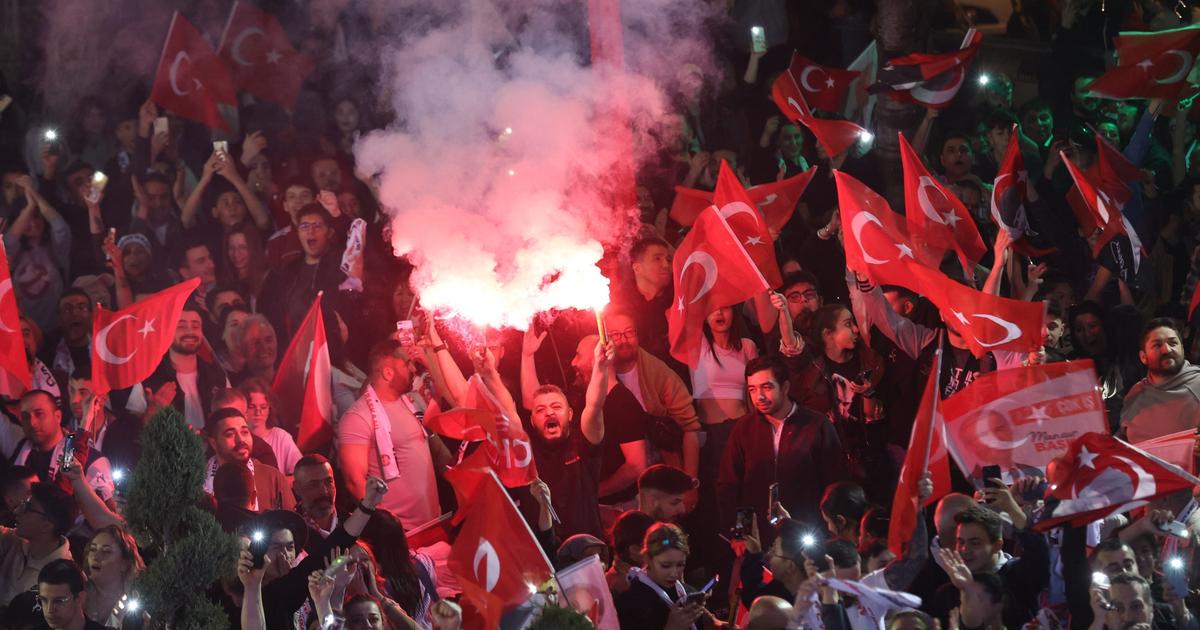Bulent Kenes, a Turkish journalist exiled in Sweden, in November in a forest near Stockholm. JONATHAN NACKSTRAND (AFP)
Eight months after Sweden and Finland applied to join NATO, Turkey is holding the enlargement block with no intention of budging anytime soon.
The two Nordic countries have acceded to various demands from Ankara, but Recep Tayyip Erdogan wants to obtain the maximum political gain from the possibility of vetoing any entry into the Alliance.
The Turkish president, who is risking his re-election in a few months, demands from Sweden the extradition of dozens of people that he describes as "terrorists" and who reside in his territory.
"Turkey confirms that we have complied with what was agreed, but it also asks us for things that we cannot do and will not do," declared the Swedish Prime Minister, Ulf Kristersson, a few days ago, in a much more forceful message than all the previous ones.
Sweden, Finland and Turkey signed an agreement during the NATO summit last June in Madrid in which the first two committed, for example, to "prevent activities" in their territory of the PKK, the Kurdish group that maintains a fight armed against the Turkish state for decades.
The Swedish and Finnish governments maintain that they are complying with the agreement: cooperation between their secret services and the Turks has increased, they have lifted their veto on the sale of arms to Turkey, and in Sweden —the country to which the vast majority of the demands — entered into force on January 1 a constitutional amendment that restricts the right of association in favor of the fight against terrorism.
The Madrid trilateral memorandum states that "Sweden and Finland will study extradition requests made by Turkey in a thorough and expeditious manner."
Several people have been extradited or deported from the Scandinavian country to Turkey in recent months, but Erdogan was dealt a setback when the handover of Bülent Kenes, the only citizen of those claimed that the president summoned in November during a meeting, was denied at the end of December. press conference in Ankara with Kristersson.
Ulf Kristersson (left) and Recep Tayyip Erdogan, in November at the Presidential Palace in Ankara. MURAT CETINMUHURDAR/PPO (REUTERS)
Kenes, a 57-year-old journalist, comments by phone that "any dissident is a terrorist for the Islamofascist despot (Erdogan)."
A refugee in Sweden since 2015, he directed the English edition of
Zaman
, the newspaper with the largest circulation in Turkey, for almost a decade until he was intervened by court order.
“I have been sentenced to three aggravated life sentences, plus another 15 years, for which I wrote in a 500-word column,” says Kenes, a human rights activist and fervent European.
Ankara responded in anger when the Swedish Supreme Court denied the journalist's extradition.
Mevlüt Cavüsoglu, Turkey's foreign minister, said the negotiations had been "poisoned".
Only a couple of weeks earlier, the Turkish government had enthusiastically welcomed the deportation of Mahmut Tat, a Kurdish man sentenced in Turkey to six and a half years in prison, accused of having provided the PKK with materials — fertilizers and batteries — to make explosives.
Tat's arrest upon landing in Ankara was televised live and Anadolu, the official news agency, claimed that the handover of the thirty-year-old, who was driving buses in the city of Dersim before fleeing to Scandinavia, was the result of accession negotiations. to NATO.
“It was shameful that Tat was deported,” criticizes Kenes.
Extradite refugees and Swedish citizens
The cases of Tat and Kenes keep a profound difference.
The former driver's asylum application was denied;
that of the journalist, approved.
Ankara urges Stockholm to extradite some citizens who have refugee status or Swedish nationality, something legally impossible.
Erdogan's government claimed 42 extraditions at the end of December, according to Swedish public radio.
The Turkish media have used different figures and lists – some included dead – and Erdogan claimed in June that Stockholm had pledged to extradite “73 terrorists”.
Whether their names are published or not, dozens of people in Sweden live in fear of ending up in a Turkish jail.
Zinar Bozkurt, a 27-year-old Kurd, is one of them.
In August he was arrested at the home she shares with her Swedish-born husband.
Bozkurt, whose asylum application was denied after six years of waiting, was detained for 55 days, during which time he went on a hunger strike.
“They accused me of being a member of the PKK;
They did not present me with any evidence ”, he maintains by phone.
Ultimately, Bozkurt's defense managed to stop the deportation and he was granted a residence permit – “at the risk of torture” – which expires in 10 months.
"I'd rather die in Sweden than be deported," she says.
"National Security Risk"
Tat and Bozkurt have in common that they have been members of Kurdish parties and have attended demonstrations in Sweden where PKK flags were waved.
Before their asylum claims were denied, their cases were handed over to the Swedish Security Police as they were classified as “national security risk” – an increasingly common practice – and ordered deported.
Extraditions of citizens legally residing in Sweden require a more complex process.
“The constitutional reform will make it possible to classify belonging to a terrorist organization, with which certain people could be extradited, which today is impossible,” explains Miran Kakaee, Bozkurt's lawyer.
More than 100,000 Kurds reside in Sweden, a well-integrated community that did not expect to be involved in the NATO accession process.
Their unease has grown since the conservative Kristersson was inaugurated prime minister with the backing of the far-right, Christian Democrats and liberals.
Many Kurds feared that the new government, succeeding a Social Democratic one, would be more willing to give in to Turkish pressure.
And soon they perceived the new tone of their rulers.
Tobias Billström, Foreign Minister, has assured that the Kurdish militias that control part of Syria, enemies of Erdogan and allies of the international coalition against jihadism led by the United States, will not be allowed to finance from Sweden.
Billström – who frequently insists that Turkey “is a democracy” – stressed that Ankara had the “right to defend itself” after Turkish aviation resumed bombing in northern Syria in November, as part of a military campaign that in 2016 led to the arms embargo that Stockholm and Helsinki have recently lifted.
Billström and Kristersson have expressed their chests on their trips to Ankara on the constitutional reform —a process initiated in the previous legislature— which, according to the prime minister, "will allow us to have much more muscle to fight terrorism."
1 Ocak 2023'te İsveç'te bir anayasa değişikliği yürürlüğe girdi.
Yapılan anayasa değişikliği İsveç'in teröre karşı yeni ve daha kapsamlı imkanlarla mücadele edebileceği anlamına geliyor.
pic.twitter.com/u5sJNW5iAs
— SwedeninAnkara / İsveç Büyükelçiliği (@SwedenAnkara) January 2, 2023
With the Turkish economy plunged into a serious crisis and with polls that he finds worrying, Erdogan is trying to blackmail Stockholm ahead of the elections scheduled for June, which could result in the main Kurdish party being outlawed.
Kenes points out that the Turkish president, in addition to benefiting electorally, is doing the Kremlin a favor by blocking the entry of Sweden and Finland: "Erdogan has become a Trojan horse for Russia in NATO."
Hungary, which refuses to cut ties with Moscow, is the other member that has not yet ratified the accession of the two Nordic countries – the last to do so was Slovakia, in September.
The Swedish population is against the concessions
A recent Ipsos poll shows that 80% of Swedes want the rule of law to be respected, even if it means delaying NATO membership.
The majority of citizens maintain their support for joining the Alliance, which would definitively put an end to more than 200 years of neutrality after the drastic turn in public opinion and in the political class caused by the Russian invasion of Ukraine.
Last week, the Turkish government called the Swedish ambassador in Ankara for consultations about holding a demonstration in Stockholm in which a mannequin with Erdogan's mask was hanged.
The Finnish authorities assume that the Turkish government will not give in in the coming months.
The president, Sauli Niinistö, has stated that he believes that the decision will not come before the parliamentary elections to be held in April in the Nordic country.
The foreign minister, Pekka Haavisto, declared that he no longer trusts that Erdogan lift the veto before the elections in Turkey, which will be held in June, but he does hope that it will take place before the NATO summit in Vilnius in July. (Lithuania).
Follow all the international information on
and
, or in
our weekly newsletter
.
Subscribe to continue reading
Read without limits
Keep reading
I'm already a subscriber

/cloudfront-eu-central-1.images.arcpublishing.com/prisa/SGFL4TVGORHRZASNGMBSLQQDZM.jpg)







